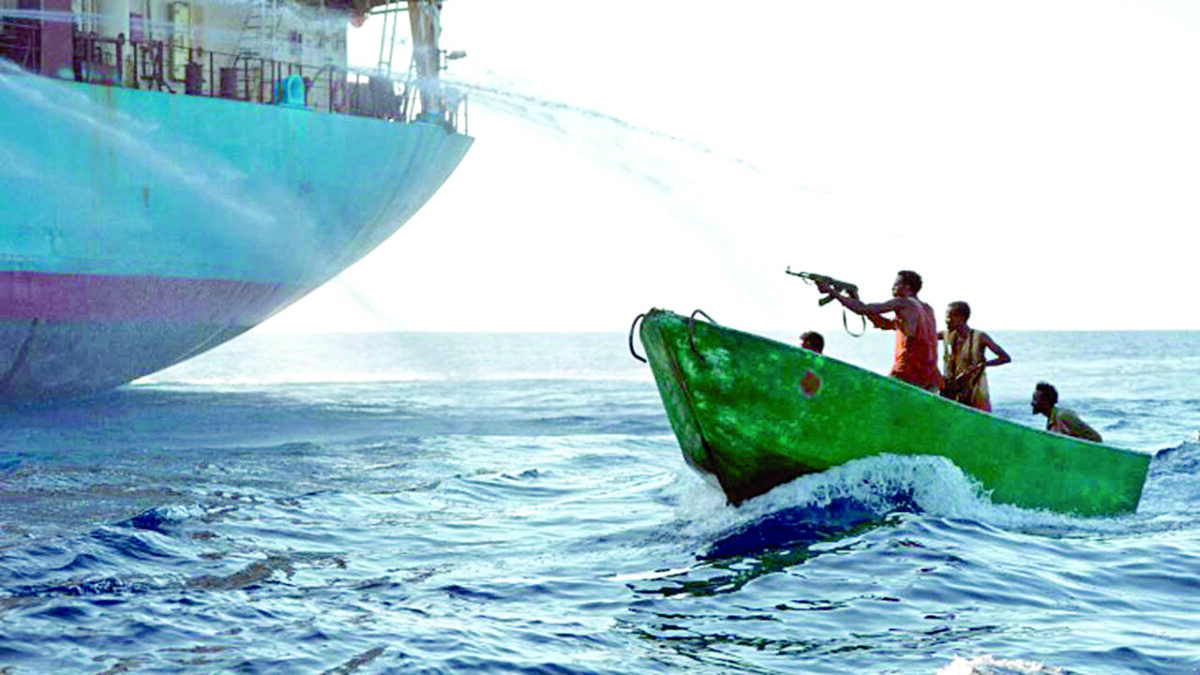
In light of the recent confirmation of a significant decline in piracy in the Gulf of Guinea (GoG), stakeholders in Nigeria’s maritime sector are urging for the country’s removal from the list of nations required to pay War Risk Insurance (WRI) premiums.
This call follows the latest report by the International Maritime Bureau (IMB), which highlights a significant drop in piracy activities in the region.
Recall that the International Maritime Bureau (IMB) released its third quarter 2024 report, revealing a significant decline in global piracy incidents, which have fallen to their lowest levels since 1994. The Gulf of Guinea, a historically high-risk area where Nigeria plays a key role, saw the fewest reported piracy cases since 1996, with just 12 incidents in the first nine months of 2024.
Despite this improvement, the IMB warned that crew safety remains a concern, as 11 crew members were kidnapped and 21 held hostage in the Gulf of Guinea during the same period.
However, speaking with Shipping Position Daily last week, the General Secretary of the Nigeria Shipowners’ Association (NISA), Mr. Jubril Rowaye called for the removal of Nigeria from the list of countries required to pay War Risk Insurance (WRI), citing the nation’s consistent efforts in reducing piracy and criminal activities in the Gulf of Guinea.
Rowaye emphasized that Nigeria’s steadfast and conscientious approach to addressing these issues has significantly improved the security situation in the region.
According to Rowaye, Nigeria is “long overdue for delisting” from WRI, as the country has made notable strides in combating piracy, which had plagued the Gulf of Guinea. He highlighted the progress achieved through various security measures and collaborations that have helped protect vessels in Nigerian waters, reducing the need for additional insurance premiums for ships operating in the area.
“Nigeria is long overdue for delisting from War Risk Insurance because of her steadfast and conscientious works towards the reduction of piracy and other criminal activities in the Gulf of Guinea,” Rowaye stated.
Also speaking, the National President of Nigerian Association of Master Mariners (NAMM); Captain Tajudeen Alao highlighted the country’s effective anti-piracy infrastructure, particularly the “Deep Blue Project”, which according to him has significantly reduced pirate attacks in the GoG.
In addition to the Deep Blue Project, Captain Tajudeen informed that Nigeria has signed Memorandums of Understanding (MoUs) with foreign nations, enhancing collaboration through joint naval exercises. These collective measures, he emphasized, demonstrate Nigeria’s serious commitment to addressing piracy, making the continued imposition of WRI premiums unnecessary.
Captain Alao believes that with these advancements, it is time the international community acknowledged the progress made and relieve Nigeria from the financial burden of paying war risk insurance on its freight.
“Nigeria has put an effective anti-piracy infrastructure in place which is the Deep Blue Project. Nigeria has also signed MoU agreements with foreign nations informing of collaboration and naval exercises. These measures have contributed to reducing pirate attacks in GoG.
“Hence, there is a conviction that we are serious in tackling the menace of piracy. There is no further need for war risk insurance levy on freight bound for West Africa” Alao stressed.
However, former President, Nigeria Merchant Navy Officers & Water Transport Senior Staff Association, Engr. Matthew Alalade raised concerns about the international community’s hesitation to remove Nigeria from the WRI list, despite the decline in piracy in the Gulf of Guinea.
Alalade noted that while piracy incidents have decreased significantly, foreign stakeholders remain cautious due to lingering fears of insecurity in the country. He explained that even though international reports highlight improved security, the International Maritime Organization (IMO) and foreign investors remain hesitant to fully trust Nigeria’s maritime safety.
He attributed this to the long-standing piracy and insecurity issues, which have deeply influenced global perceptions about Nigeria.















